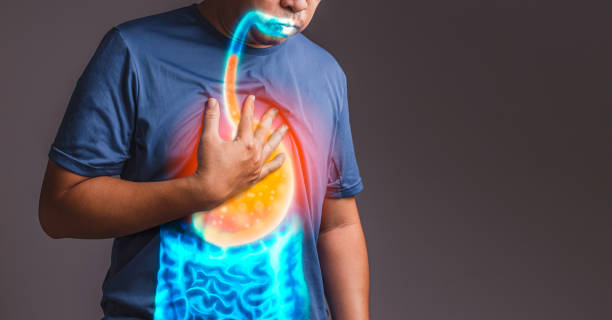If you’ve ever felt a familiar burning sensation rise from your chest to your neck after eating, you’re not alone. Heartburn affects millions of individuals every day and is a primary symptom of acid reflux, also known as GERD. While antacids and medicines may provide temporary relief, long-term control begins with how and what you consume. Your eating habits from portion size to timing to food choices have a significant impact on whether stomach acid remains in your stomach or travels up your throat.
In this article, we’ll look at eating habits that reduce heartburn, providing you with practical, lifestyle-friendly advice on how to eat in a way that soothes rather than irritates your digestive system.
MUST READ:Best Cooking Oils for Heart Health
Why Heartburn Happens in the First Place
Heartburn develops when the lower esophageal sphincter, a muscle that serves as a valve between the stomach and the esophagus, weakens or relaxes at the incorrect time. This permits stomach acid to seep upward, hurting the sensitive esophageal lining.
Certain meals, practices, and even meal time might weaken the LES or raise stomach pressure, resulting in acid reflux and heartburn symptoms. That is why changing your eating habits can be as important as changing your diet.
Smart Eating Habits to Soothe Your Digestive System
Heartburn relief begins with simple, conscious modifications at lunch. These eating habits help to reduce acid reflux and protect the esophagus.
1. Eat Smaller, More Frequent Meals
Large meals stretch your stomach, putting extra pressure on the LES and increasing the likelihood of reflux. Rather than eating three large meals per day, opt for five to six smaller meals or snacks. This prevents your stomach from overfilling and reduces acid production.
Tip: Use smaller plates and pause between bites. Eating thoughtfully can help you realize when you’re full and prevent inadvertent overeating.
2. Slow Down and Chew Thoroughly
Fast food is a major cause of heartburn. Eating too rapidly causes you to swallow more air, which increases stomach pressure and encourages reflux. It also impedes proper digestion, putting additional strain on the stomach.
What to do: Take at least 20 minutes to eat your meal. Chew each bite fully to help digestion and lessen the strain on your stomach.
3. Avoid Lying Down After Eating
Gravity helps stomach contents stay where they belong. When you lie down after a meal, particularly on a full stomach, acid can readily enter the esophagus.
Golden rule: After eating, wait at least 2-3 hours before lying down or going to bed. This allows your stomach time to digest and empty the majority of its contents.
4. Don’t Eat Too Late at Night
Eating close to bedtime promotes heartburn. Late-night meals increase the likelihood of acid reflux while lying down. Even nutritious foods can be hazardous if consumed too late.
Best Practice: Finish your last meal at least three hours before bedtime. If you’re hungry at night, go for something light like a banana or a tiny bowl of oatmeal.
5. Stay Upright While and After Eating
Sitting upright helps to relieve strain on your LES and promotes normal digestion. Eating while slouched, reclined, or reclining on the sofa after meals might compress the stomach and cause acid reflux.
Pro tip: Maintain a relaxed but upright posture when eating, and consider going for a short walk afterward to improve digestion and keep acid where it belongs.
6. Drink Fluids Between Meals—Not with Them
Drinking a lot of liquid with meals can stretch the stomach and cause acid reflux. However, staying hydrated is still necessary for digestion.
Try this: Drink water throughout the day and avoid drinking too much during meals. If necessary, take little sips rather than gulps when eating.
7. Limit Carbonated Drinks and Caffeine
Sodas, carbonated waters, and energy drinks all introduce gas into the stomach, increasing pressure and promoting reflux. Caffeine relaxes the LES and may stimulate acid secretion.
Best alternatives: Stick to still water, herbal teas, or decaffeinated beverages. If you can’t give up coffee, choose low-acid kinds and limit yourself to one cup in the morning.
Final Thoughts: A Heartburn-Free Life Starts with How You Eat
Heartburn does not have to be an everyday issue. Adopting healthier eating habits, such as slowing down, eating smaller portions, avoiding triggers, and carefully timing meals, can significantly lessen your symptoms without relying exclusively on drugs.
Consistent, mindful eating practices improve your digestive system’s ability to work properly and recover over time. Remember, if heartburn occurs more than twice a week or interferes with your quality of life, you should consult your doctor about additional examination and treatment.


